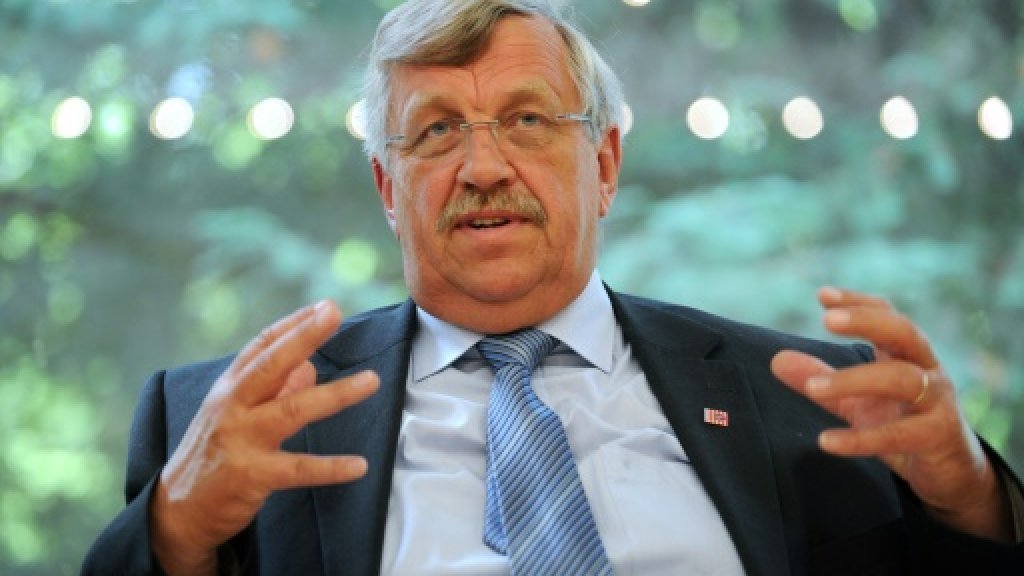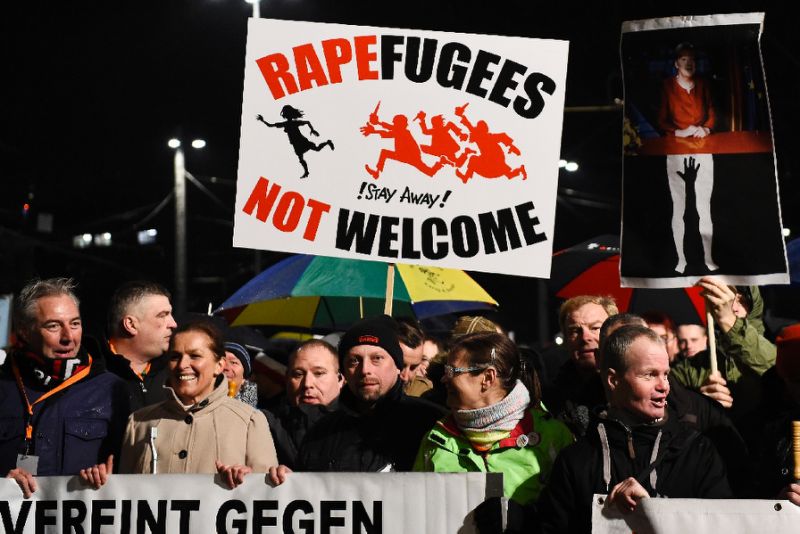The day that Tobias R. decided to go on a shooting rampage in the center of the German town of Hanau, he crossed the disturbing threshold into violent extremism. As information about his profile and motives began to emerge in the chaotic hours after the attack, it was hard not to conclude that he ticked most of the boxes of a typical “far-right extremist.”
Further information pieced together a complex portrait of a lone actor with an intense hatred of immigrants, a broad spectrum of racist views underpinned by a host of stereotypes and prejudices, and a disturbing fondness of bizarre conspiracy theories.
It was only a matter of time before the question of the 43-year-old’s mental health was also dragged into the discussion. Jörg Meuthen, co-leader of the Alternative for Germany (AfD) radical-right party, used the perpetrator’s online “manifesto” to label him a “paranoid-hallucinatory schizophrenic.”
Hanau Shooting: Isolated Act?
“Extremist,” “far-right,” “disturbed,” and “madman.” Notice how so much of the language used in the story’s framing emphasizes the perceived exceptionality of the perpetrator. Mainstream society wants to see in Tobias R. the antithesis of itself. It is thus comforting to focus primarily on his oddball conspiracy ramblings, the intensity of his hatred towards immigrants, the unconventional details of his lifestyle, and the murderous violence of his method.
Das "Manifest" des Wahnsinnigen von Hanau ist nun bekannt. Ferndiagnose einer Psychiaterin: paranoid-halluzinatorische Schizophrenie. Er hätte in die Psychiatrie gehört! Stattdessen will man UNS die Schuld in die Schuhe schieben. So schäbig & widerlich!
➡https://t.co/gg0OH7dvFR pic.twitter.com/b4OmhdrMCk
— Prof. Dr. Jörg Meuthen (@Joerg_Meuthen) February 21, 2020
By branding him “extremist” and “far-right,” a cliché designation that serves the purpose of ideological distancing and detachment, Tobias R. was turned into something other than “us” – a fringe figure, outlier, maniac, and abnormal zealot. Invoking his mental health as the primary explanation for his violent behavior and obsessive ideas has effectively removed him from any political, social, or cultural context.
This is precisely what the AfD leadership did in the wake of the attack. Meuthen dismissed the chorus of voices that had pointed the finger to the “far-right” views of the perpetrator, arguing instead that this was “neither right nor left-wing terrorism” but an isolated act derived from a delusional mind.
Mainstream Context
But by exceptionalizing Tobias R. in one way or another, we have also deprived him of his connection to our society and culture. We have over-emphasized the extremity of his violent method and his outlandish persecutory delusions only to dodge the consummate normality of the underlying assumptions that shaped and motivated his hatred: that immigration is the root of all present-day problems; that races exist and are inherently unequal; that national identity is under existential threat from multiculturalism; that elites have betrayed the people; and so on.
These views are anything but “extreme” in the sense that they have come to saturate everyday mainstream discourse and have become accepted or tolerated by wide sections of mainstream society. They feed on undercurrents of cliché nationalism, conventional narratives of history, normalized anger, and long-standing prejudices that were for long assumed to be on their way out but never ceased to ferment underneath the skin-deep veneer of a seeming liberal, ever-progressive public consensus.
Far-Right in Germany
When it became clear that the perpetrator fitted the profile of a lone self-radicalized far-right terrorist, attention was drawn to the particular German context of the incident.
Only days before the Hanau terror incident, the crackdown against the clandestine anti-Muslim terror cell Der harte Kern (Hard Core), whose members planned violent attacks on mosques, immigrant targets, and key political figures seen as pro-immigration, illustrated the growing threat from the militant far-right in contemporary Germany.
In September, the trial of another neo-Nazi terror cell (Revolution Chemnitz) that planned to attack both immigrants and elite political and media figures, kicked off in Berlin. In June, a far-right extremist with a violent anti-immigrant past assassinated Walter Lübcke, a prominent figure of the ruling CDU party in Hesse known for his pro-refugee views.

These and other incidents of increasing far-right violent activity unfolded against the backdrop of the recent rise of support for the AfD in the polls. News of the Hanau killing spree led a series of German politicians from all mainstream parties to link the incident, as well as the broader recent increase in far-right terrorism across the country, with the anti-immigrant ideas and divisive nationalist language used by the AfD.
Such a focus on the corrosive, cumulative effects of offline and online hate speech is of course welcome and long overdue. Germany is far from unique in having recorded significant electoral gains made by anti-establishment, populist radical-right parties in recent years. It is definitely not the only country where far-right terrorist activities are on the rise and represent a major – perhaps the major – threat to social cohesion.
Line Against Extremism
The president of the German parliament, Wolfgang Schäuble, admitted that the country had underestimated the threat from the far right. He also claimed that such violent incidents do not occur “in a vacuum” but remain anchored in a broader political culture where anger and resentment towards “others” have become normalized. “Words can be followed by action,” said Schäuble, accusing the AfD of failing to “draw a line” against extremism.
The line, however, is not traversing just the AfD or parties with similar radical xenophobic, anti-immigrant or anti-Muslim views in other countries. It is a deep fault line that has festered at the very heart of mainstream politics and culture. Schäuble’s own party too is facing the temptation to embrace a more hardline nationalist stance as it plots its direction in the post-Merkel era amidst electoral debacles and internal ideological divisions.
Framing the discussion exclusively in terms of a threat from “extremist” views that belong to the margins of society sustains the comforting fiction of a clear-cut fissure between mainstream and radical-extremist ideas or parties.

Yet attacks such as the one perpetrated in Hanau illustrate how extreme hatred of “others” does not explode out of nowhere but grows over time, in unspectacular small steps, from otherwise unremarkable, even trivialized individual assumptions and ideas into a collective moral blind spot.
There is a crucial line that distinguishes nonviolent from violent forms of radicalization, and this is a line that needs to be drawn and enforced with renewed determination and rigor. Yet this is not the only, the most urgent, or the most disturbing one. It only matters alongside another line that targets hate speech and verbal “othering.” This broader context that normalizes radicalization and feeds violent extremism cannot continue to be overshadowed by the focus on the act itself. The forest matters at least as much as the trees.
We will do the victims of the Hanau terrorist attack little service if we carry on framing it as the exclusive, isolated product of an “extremist” mindset that inhabits the fringes of society. This has been made possible by a rogue hotchpotch of otherwise normalized xenophobic, hyper-nationalist, racist, anti-Muslim ideas amidst a contemporary context that has grown tolerant of, if not largely desensitized to, aggressive hate speech.
The extreme method and devastating effects of the attack belie the sheer mundanity and disturbingly broad mainstream acceptance of the ideas that underpinned it.
Disclaimer: The views and opinions expressed here are those of the author and do not necessarily reflect the editorial position of The Globe Post.























